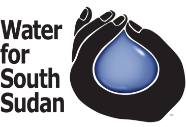South Sudan President Kiir signs Compact on Water and Sanitation
We are proud to share that our Founder, Salva Dut, and Country Director, AJ Agok, have been involved in the planning for the Compact on Water and Sanitation, which was signed by South Sudan President Kiir in June. This resolution is a significant milestone in improving equitable access to clean water, hygiene, and sanitation (WASH).
WFSS’s role and timeline of involvement
Planning for the Compact on Water and Sanitation resolution began in February 2023, when UNICEF invited WFSS to join the discussion. This initial meeting began as the annual water, sanitation, and hygiene (WASH) review. The committee determined that key stakeholders, including the South Sudan Parliament, should be involved in developing the resolution.
Our Founder, Salva Dut, and Country Director, Ajang Agok, attended the three-day conference in February 2024. The resolution was fully developed during a workshop attended by the ambassadors of Japan and Germany, along with the ambassadors from the Netherlands, Germany, and Japan, the World Bank, TD Global, WFSS, and UNICEF. Parliament approved the resolution, which South Sudan President Kiir signed.
South Sudan President Kiir
What does the signing of the Compact on Water and Sanitation resolution mean?
Hygiene and sanitation are areas in need of significant improvement, even in large cities. The details of how projects will be implemented are still being determined. Large companies will likely come in to manage sanitation projects, and indigenous NGOs will support sub-projects and take over once large projects are complete.
Additionally, local NGOs will participate in implementing the WASH resolution. The goal is to build up the capacity of indigenous NGOs.
The Netherlands and Switzerland have already expressed interest in funding work related to the resolution.
How does this affect WFSS?
The signing of the Compact on Water and Sanitation resolution opens the opportunity to build capacity for many local NGOs, including WFSS and the Water Institute of South Sudan, and citizens working in the water sector. Improved capacity means more individuals and organizations can build, monitor, and maintain WASH projects, ensuring sustainable water sources and sanitation services now and into the future.

